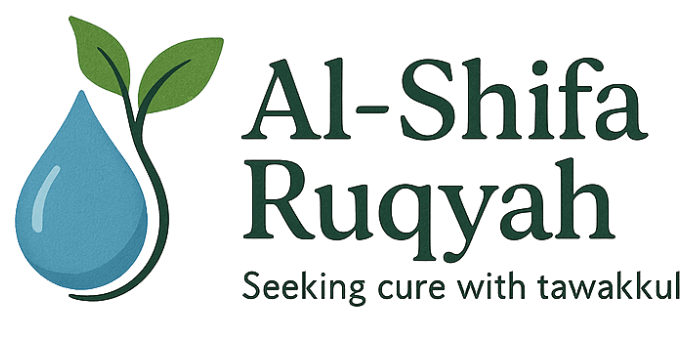The Blessed Cure- Introduction to Ruqyah
A Selection of the Most Significant Ayaat and Adhkaar from the Qur’an and Sunnah for Ruqyah
Part 1 of “The Regimen: Ruqyah with the Qur’an and Sunnah”
Compiled by Dalia Elamawy
Introduction
Ruqyah — spiritual healing through the Qur’an and Sunnah — is one of the most blessed forms of seeking Allah’s shifaa’. While the entire Qur’an is a cure, certain ayaat carry distinct effects and have been explicitly narrated to be used for ruqyah.
Please note: There are many ayaat used for ruqyah; the ones below are those that I have personally used regularly and have found their effect to be quite significant. The ayaat that have been explicitly narrated to be used for ruqyah are labeled as توقيفي (divinely revealed).
The Whole Qur’an is a Cure
All of the Qur’an is shifaa’ (cure), but we can tailor the ruqyah to the type of healing we seek. During ruqyah, make your best effort to reflect on the meaning of what you are reciting. The more you are engaged with what you are saying, the greater the effect it will have.
The first step is to make the intention for shifaa’, coupled with absolute conviction that no one can cure except Allah, al-Shafi. We are merely the means to the cure. When reciting any of the following ayaat or adhkaar, reflect on their meaning and recite at least once. During the ruqyah, you or the Raqi should have a very strong mental presence and awareness of what is happening to you physically.
This is not the time to recite delicately or too melodiously. The recitation should be audible, assertive, and clear — without prolonging.
If you feel anything unusual — drowsiness, tremors, pain, or discomfort — repeat the parts that caused that reaction. Do not worry; this is all part of the healing process.
How to Perform Ruqyah
You may do ruqyah by reciting:
Into your hands, blowing with very little spittle, then passing your hands over the afflicted area of the body.
While placing your hand directly on the area or on the forehead of the afflicted (impermissible for a non-mahram).
Into water (preferably Zamzam) — by putting your mouth close to the container, blowing lightly after each recitation, and having the afflicted drink it.
Into olive oil (extra virgin) — blowing lightly after each recitation and having the afflicted rub it on the pained area.
Into water for bathing — especially in occurrences of sihr (magic) or ‘ain/hassad (evil eye or envy).
Before You Begin Recitation
Say:
أَعُوذُ بِاللَّهِ السَّمِيعِ الْعَلِيمِ مِنَ الشَّيْطَانِ الرَّجِيمِ، مِنْ هَمْزِهِ، وَنَفْخِهِ، وَنَفْثِهِ
“I seek refuge in Allah, the All-Hearing, the All-Knowing, from Shaytaan the outcast — from his whispers, his blowing, and his nafth.”
Then say:
بِسْمِ اللَّهِ الرَّحْمٰنِ الرَّحِيمِ
“In the Name of Allah, the Most Gracious, the Most Merciful.”
Send salaah and salaam upon the Messenger ﷺ, and begin.
This marks the foundation of your ruqyah regimen — entering into healing with full presence, sincerity, and conviction that no cure exists except by Allah’s permission.
Next in the series: “Foundational Recitations for Protection” — exploring the Adhaan and Surat al-Fatihah as the first pillars of ruqyah.
